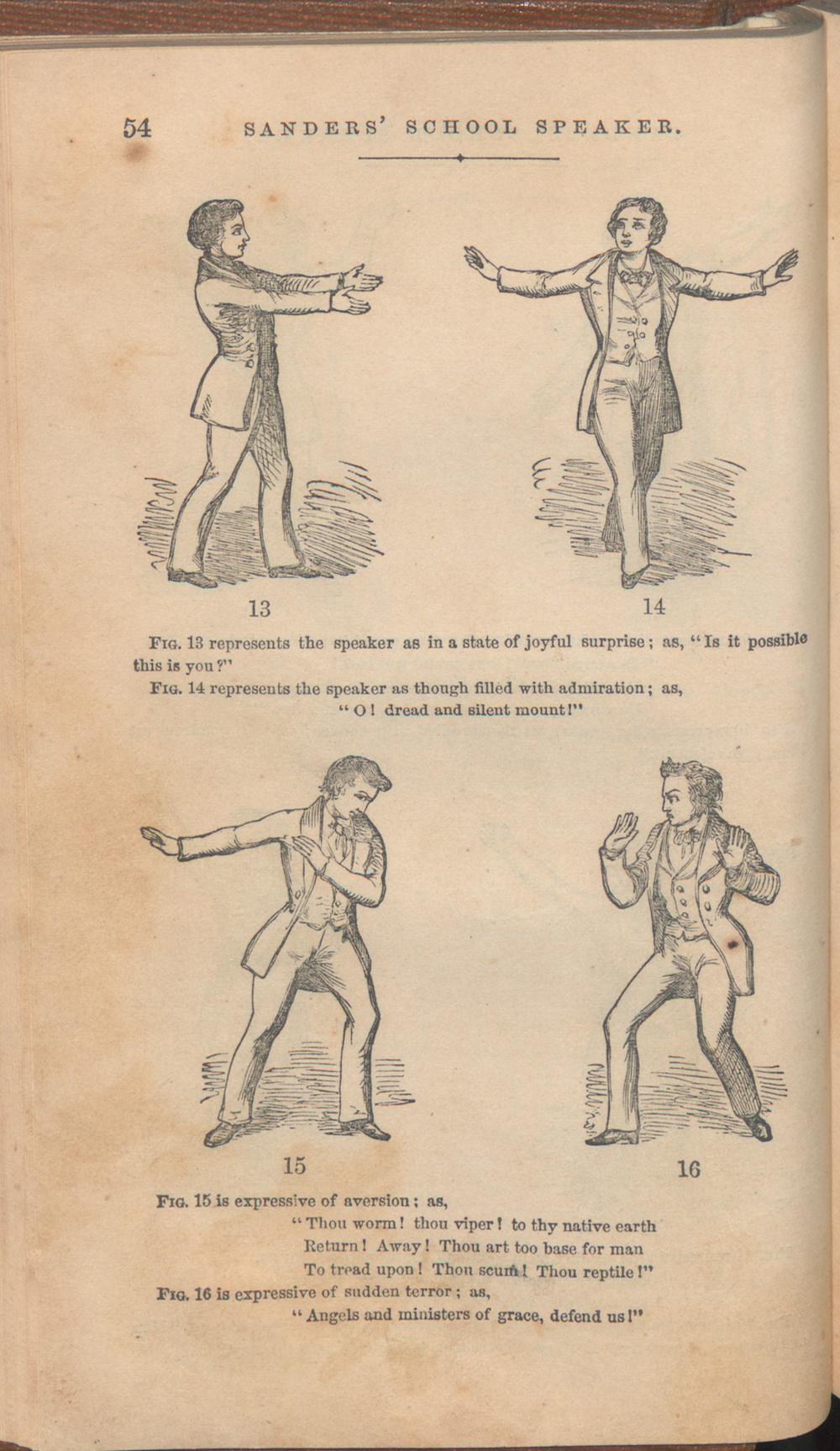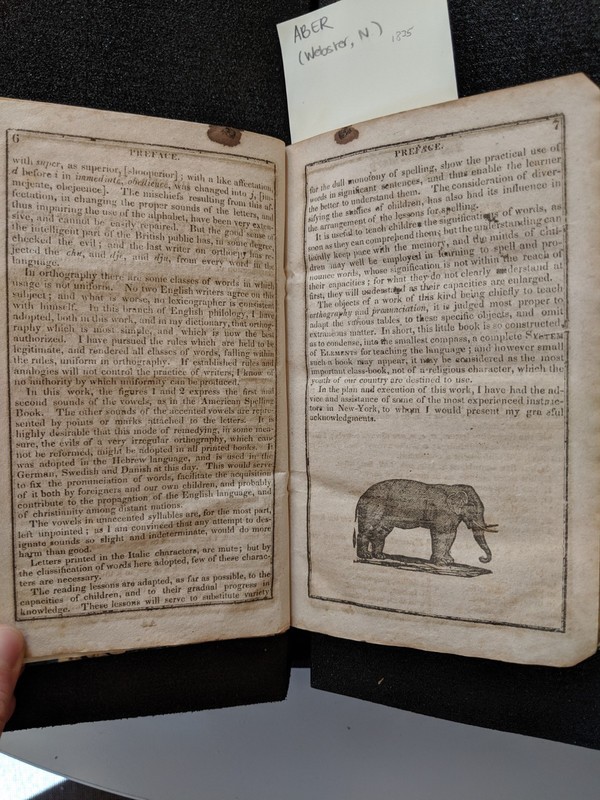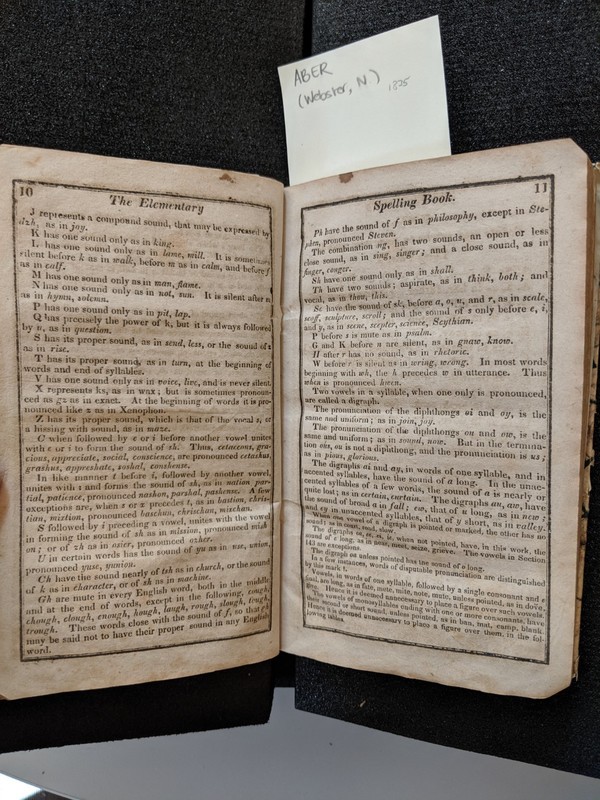Narrated Event #2: Problems with Palatalization
On the next page, Webster describes in detail an example of “bad” pronunciation, using strong language to characterize it as such. He takes particular issue with the pronunciation of “u as yu” which results in the pronunciation of [d] as [dʒ] or [t] as [tʃ], as in gradual and nature. A fairly simple assimilation effect resulting from the articulation of an alveolar plosive before a high vowel (which he in fact describes as a normal process just a few pages later in the case of patience and nation), the palatalization of these consonants is rather common cross-linguistically, and should not be seen as a major crisis. Webster’s reaction, however, would lead one to believe otherwise. “The mischiefs resulting from this affectation,” he says, “in changing the proper sounds of the letters, and thus impairing the use of the alphabet, have been very extensive, and cannot be easily repaired” (6). Already, he is designating the pronunciation as causing “mischief” and “impairing” the language. It is apparently causing irreparable damage, as well. However, he continues thus: “But the good sense of the intelligent part of the British public has, in some degree, checked the evil” (6). So though it may not be “easily” repaired, it can be stopped in its tracks, if one uses “good sense,” and moreover, if one is “intelligent.” The pinacle of the comment the final word here: evil. If it was not yet clear that Webster aligns good language with moral goodness, it is now unmistakable.


